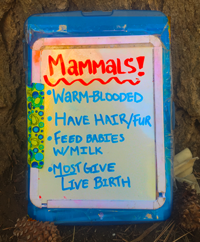 What are the characteristics of a mammal? When I present this question to my students, they are instantly excited to share their knowledge of these awesome creatures. We end up with a list of traits describing what makes a mammal a mammal. They are warm-blooded, they have hair on their bodies, they give milk to their babies, and MOST of them give live birth. That’s right, some mammals actually lay eggs!
What are the characteristics of a mammal? When I present this question to my students, they are instantly excited to share their knowledge of these awesome creatures. We end up with a list of traits describing what makes a mammal a mammal. They are warm-blooded, they have hair on their bodies, they give milk to their babies, and MOST of them give live birth. That’s right, some mammals actually lay eggs!
When I drop this line to my students, their jaws drop in disbelief and their brains overflow with curiosity.
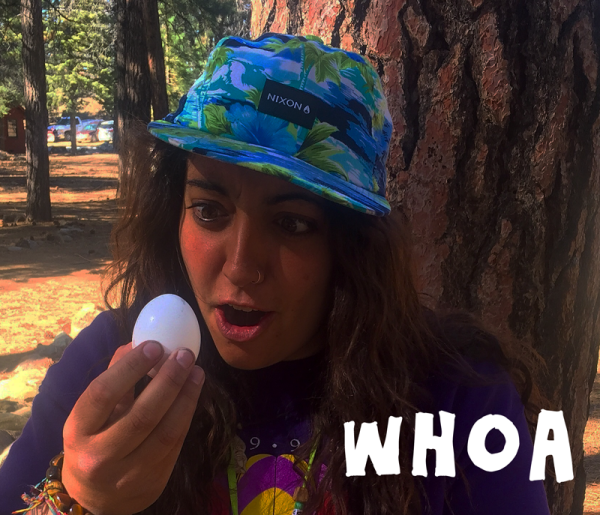
Monotremes
Egg Laying Mammals are called Monotremes and there are only five living species left in the world. One of these species is our friend, the Duck-Billed Platypus. This unique mammal is considered to be one of the most evolutionary distinct organisms alive today. It is the only living member of the Ornithorhynchidae family, which dates back to 146 million years ago – WOW!
There are many features about the Duck-Billed Platypus that lead people to believe they are actually reptiles.
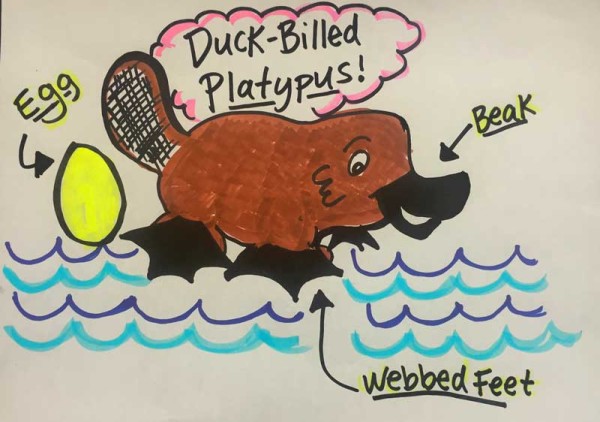 In addition to laying eggs, they have legs on the sides instead of underneath their bodies and they have webbed feet with tough claws for swimming and digging. They also have incredible bills that can sense the sounds of other animals to help them hunt! Cool huh?
In addition to laying eggs, they have legs on the sides instead of underneath their bodies and they have webbed feet with tough claws for swimming and digging. They also have incredible bills that can sense the sounds of other animals to help them hunt! Cool huh?
So…these animals have fur like mammals, feet like birds, and lay eggs like reptiles? Yes. But they are considered Mammals!
Let’s talk about this egg-laying process.
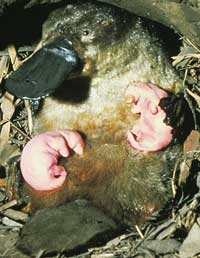 When a platypus is two years old, it is ready to mate. Two to three eggs will develop in the female platypus after successfully mating. After about one month, the mother will lay the soft, lizard-like eggs and will then nurture them for ten days before they hatch. Newborn platypuses are helpless, blind, hairless, and are the size of a lima bean!
When a platypus is two years old, it is ready to mate. Two to three eggs will develop in the female platypus after successfully mating. After about one month, the mother will lay the soft, lizard-like eggs and will then nurture them for ten days before they hatch. Newborn platypuses are helpless, blind, hairless, and are the size of a lima bean!
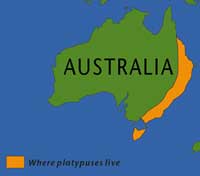 You may be wondering how you can find one of these epic creatures. Unless you’re taking a trip to the land Down Under in the near future, you’re out of luck. That’s right, the Duck-Billed platypus spends its time in the freshwater streams, lakes, and lagoons of Eastern Australia. If you do take the trip down to get a closer look at these furry friends, don’t get too close. The male platypus has an insanely strong venom pocket located on the back of its legs, which is capable of killing a small animal- yikes!
You may be wondering how you can find one of these epic creatures. Unless you’re taking a trip to the land Down Under in the near future, you’re out of luck. That’s right, the Duck-Billed platypus spends its time in the freshwater streams, lakes, and lagoons of Eastern Australia. If you do take the trip down to get a closer look at these furry friends, don’t get too close. The male platypus has an insanely strong venom pocket located on the back of its legs, which is capable of killing a small animal- yikes!
Let’s move on to the other Monotreme…the Echidna.
There are four species of Echidna, also known as the spiny anteater, that are rare egg-laying mammals. As the cousin of the Duck-Billed Platypus, the Echidna can also be found in the far away land of Australia, with some living in Tasmania and New Guinea. Unlike the platypus, which only spends time in water, the echidna is a land animal. With a pouch like a kangaroo, a beak like a bird, and spikes like a porcupine, this mammal is another oddball!
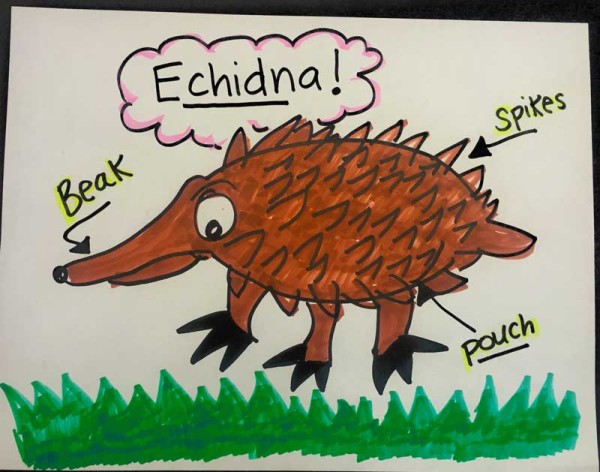 Echidnas lay one single egg in the pouch of the female’s belly. This leathery egg hatches in about ten days, revealing a baby echidna that, like the baby platypus, is blind and hairless. An adult Echidna has long spines protecting its body, sharp claws, and a sensitive snout. Although it doesn’t have teeth, the Echidna uses its long, sticky tongue to slurp up termites. Once the baby Echidna starts to grow spines, this is the cue for the mama Echidna to find a burrow and continue to care for her baby for another seven months until it is ready to take on the world!
Echidnas lay one single egg in the pouch of the female’s belly. This leathery egg hatches in about ten days, revealing a baby echidna that, like the baby platypus, is blind and hairless. An adult Echidna has long spines protecting its body, sharp claws, and a sensitive snout. Although it doesn’t have teeth, the Echidna uses its long, sticky tongue to slurp up termites. Once the baby Echidna starts to grow spines, this is the cue for the mama Echidna to find a burrow and continue to care for her baby for another seven months until it is ready to take on the world!
These Monotremes are real and they are pretty darn cool. Next time you think that mammals aren’t capable of laying eggs, think again!
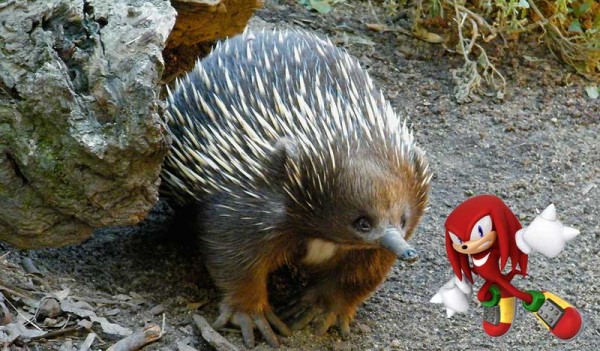
Yes, Knuckles is an Echidna.
At High Trails Outdoor Science School, we literally force our instructors to write about elementary outdoor education, teaching outside, learning outside, our dirty classroom (the forest…gosh), environmental science, outdoor science, and all other tree hugging student and kid loving things that keep us engaged, passionate, driven, loving our job, digging our life, and spreading the word to anyone whose attention we can hold for long enough to actually make it through reading this entire sentence. Whew…. www.dirtyclassroom.com

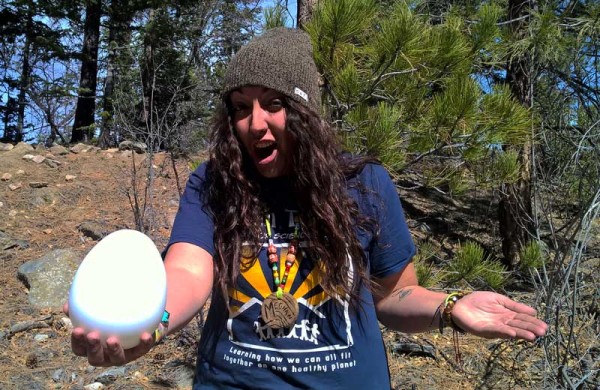
Comments are closed.